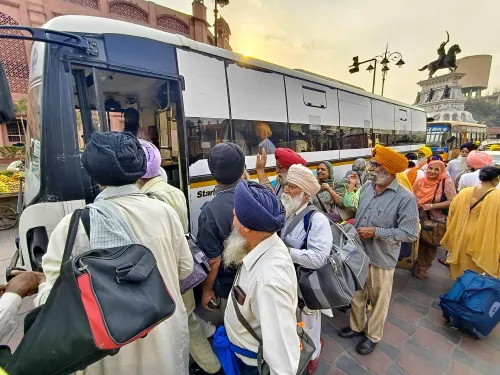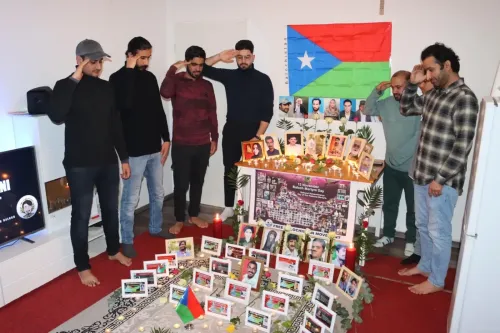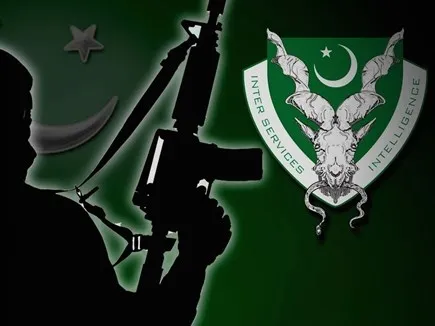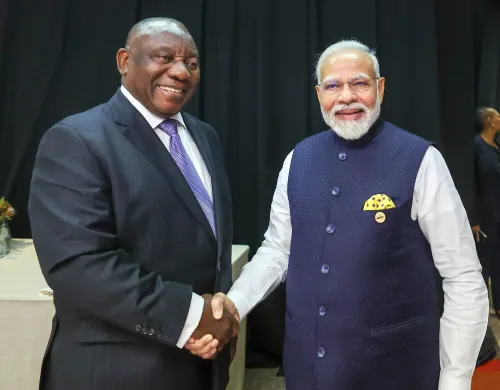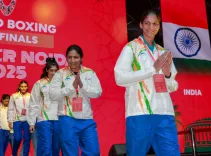Why is India Criticizing Pakistan's Role in the UNSC Sanctions Committee?

Synopsis
Key Takeaways
- India raises concerns about Pakistan's leadership in UNSC committees.
- Conflicts of interest could undermine the Council's integrity.
- Calls for enhanced transparency in decision-making processes.
- The 1988 committee holds power over Taliban-related sanctions.
- China's influence remains a significant barrier in sanction discussions.
United Nations, Nov 15 (NationPress) India has expressed strong disapproval regarding Pakistan's leadership of the Security Council's committee overseeing sanctions against the Taliban and its co-chairing of the counter-terrorism panel, highlighting potential conflicts of interest.
During a Council debate on its operational methods, India's Permanent Representative P Harish asserted that members of the Council should not preside over committees in which they possess vested interests.
"There is no room for obvious and blatant conflicts of interest within the Council,” he remarked.
While he did not explicitly mention Pakistan, an elected two-year member of the Council, or specific committees, his comments clearly pointed to these entities.
The 1988 committee, named after the resolution that established it, holds the authority to impose travel bans on Taliban affiliates. The recent visit of Afghanistan’s Foreign Minister Amir Khan Muttaqi to India was delayed due to complications in securing a travel waiver.
Pakistan is currently engaged in a conflict with Taliban-led Afghanistan, resulting in tensions between their military forces.
As co-chair of the counter-terrorism committee, Pakistan has been criticized for harboring numerous terrorist groups and leaders, some of whom are under UN sanctions.
Harish also emphasized the need for a more transparent, objective, and timely process for selecting chairs of subsidiary bodies and pen-holders, which are the members responsible for specific countries and issues.
He called for increased transparency in the operations of the Security Council's anti-terrorism committees and the selection of their leadership.
“The decision-making process regarding sanctioning terrorists or terror organizations occurs in secrecy,” he pointed out.
He cited the example of how requests for listing are often declined without clarity, unlike de-listing decisions, which are more transparent.
China has repeatedly obstructed attempts by India and the US to impose sanctions on leaders of Lashkar-e-Tayyiba and Jaish-e-Mohammad through the committee addressing the Islamic State and al-Qaeda.
This committee is referred to as the 1267 committee, following the Council resolution that created it.
Harish also touched upon the UN Military Observer Group (UNMOGIP), established to oversee the ceasefire in Kashmir. While India argues it has lost relevance, Pakistan wishes to maintain its presence.
“The continuation of mandates that no longer serve a purpose for the narrow political gains of certain states should not be permitted,” he stated, without directly naming UNMOGIP or Pakistan.
“In a resource-constrained environment, this ongoing presence drains the UN and member states that are striving to optimize UN operations,” he added.
“I implore the Council to take necessary actions to implement sunset clauses for UN peacekeeping operations, which could extend to other peacekeeping missions as well.”

